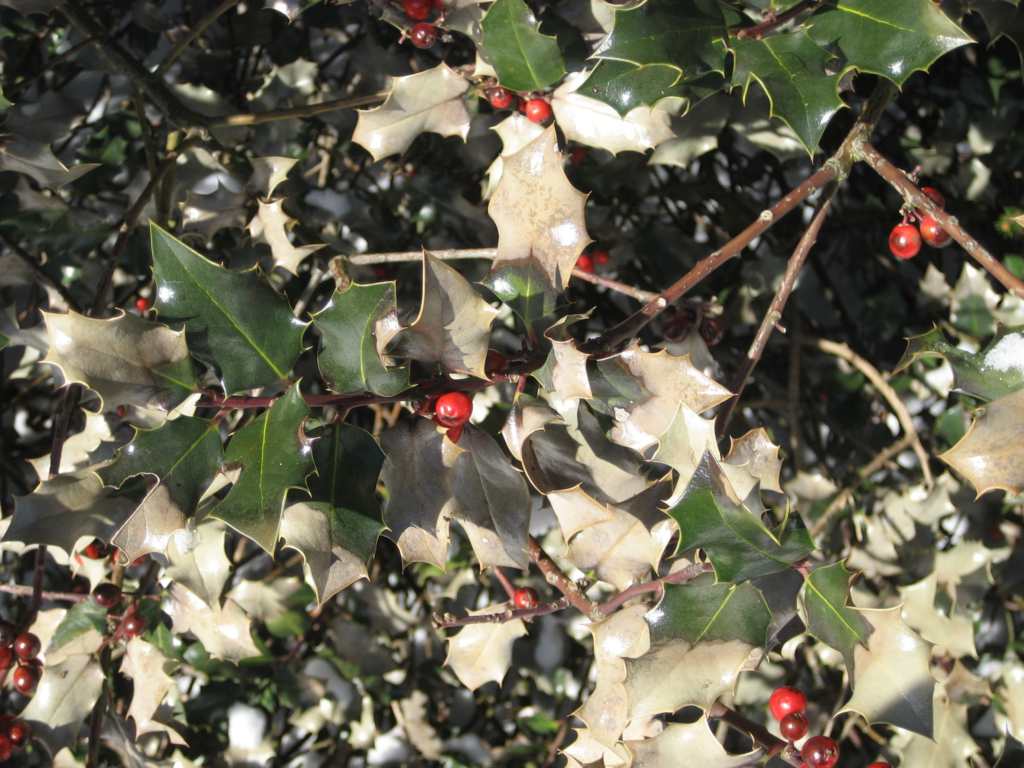Table of Contents
ToggleAdditional Winter Landscape Protection Tips
To give your ornamental trees and shrubs the best chance of thriving through winter:
- Wrap vulnerable shrubs with burlap to reduce wind burn
- Water throughout fall but stop when ground freezes
- Maintain 2–3 inches of mulch, but keep it away from trunks and stems
- Wrap young tree trunks to prevent winter splitting
- Gently remove snowfall from trees and shrubs as quickly as possible
New Jersey winters can be tough on trees and shrubs, especially young or recently transplanted plants. Pairing good cultural practices with anti-desiccant spray gives your landscape a strong defense against harsh winter months.
Why Anti-Desiccant Spray Is Worth It To Your Plants
These treatments:
- Reduce winter moisture loss
- Protect foliage from wind burn and browning
- Help evergreens stay vibrant and healthy
- Reduce spring recovery stress
- Support long-term plant health
Comprehensive care for your trees and shrubs is always recommended. Anti-desiccant treatments are included in our Tree & Shrub Program. By managing pests and diseases, providing proper watering and mulching, and performing routine pruning, you can give your landscape the best chance to thrive and stay healthy year-round.
Have Questions or Want to Schedule Service? We’d love to help.
Call Fairway Green, Inc. to speak with our team, or request service online.
Frequently Asked Questions About Anti-desiccants
Q: How long does an anti-desiccant treatment last?
A: Typically, 6–8 weeks. Because New Jersey winters can be long, we often recommend two applications for full coverage through early spring.
Q: When is the best time to apply it?
A: We apply anti-desiccants in late fall and early winter (November–January), before temperatures drop significantly and wind exposure increases.
Q: Can I skip treatment if my plants “look fine”?
A: Many winter injuries aren’t visible until early spring — when the damage is already done. Protection is most effective before stress occurs.
Q: Will anti-desiccant make my plants look shiny or coated?
A: No — when applied correctly, the coating is invisible. Your plants will look natural.
Q: Should newly planted shrubs receive anti-desiccant?
A: Absolutely — younger plants lose moisture faster and have smaller root systems. They benefit significantly from the added protection.
New Jersey winters can be unpredictable, with fluctuating temperatures, bright winter sun, and drying winds that place stress on plants. While evergreen shrubs continue to lose moisture through their foliage all winter, they can’t replace that moisture once the ground freezes. This condition, known as desiccation, can cause browning, leaf damage, and even branch dieback if not managed properly. Luckily, a seasonal anti-desiccant spray can protect your trees and shrubs through the winter.
What Is Plant Desiccation?
All trees and shrubs lose moisture through their leaves and stems routinely. desiccation is moisture loss beyond what is tolerable to a tree or shrub. During winter, broadleaf evergreen plants (the ones that keep their foliage year-round) continue to lose moisture through their leaves. Other trees and shrubs lose their leaves, and the moisture loss is then minimal. The issue for evergreens is that once the ground freezes, their roots can’t draw water back in to replace what they’ve lost.
Winter Desiccation can lead to:
- Browning foliage
- Dry, brittle stems
- Branch dieback
- And in severe cases, plant decline heading into spring
Over the course of the winter, this moisture imbalance builds up. You may not notice the damage it causes until the spring, when foliage browning and dieback become visible.

How Anti-Desiccant Treatments Help
An anti-desiccant spray for evergreens acts like a protective coating on evergreen foliage. Once applied, it slows moisture loss caused by cold temperatures, wind, and winter sun. It does not harm the plant — instead, it reduces winter stress and helps the plant maintain healthy moisture levels.
This protective layer helps stabilize the plant’s internal moisture, reducing stress from cold snaps and winter burn. Additionally, plants treated with anti-desiccant in the winter typically recover faster in the spring. They enter the growing season with less stress and injury, allowing them to put energy into vigorous new growth.
How to Apply Anti-Desiccants Correctly
At Fairway Green, Inc., we use professional spray equipment to evenly coat the foliage. The product dries within a few hours and remains effective for 6-8 weeks. Because winter weather in New Jersey can persist past February, a second treatment is often recommended.
Which Plants Benefit From Anti-Desiccants The Most?
Anti-desiccants are most beneficial for broadleaf evergreens, including:
- Boxwood
- Holly
- Rhododendron
- Mountain Laurel
- Cherry Laurel
- Andromeda (Pieris)
These plants are especially vulnerable when planted in areas exposed to winter winds, reflective heat, or full sun. Newer plants, with a less established root system, are at even higher risk.




